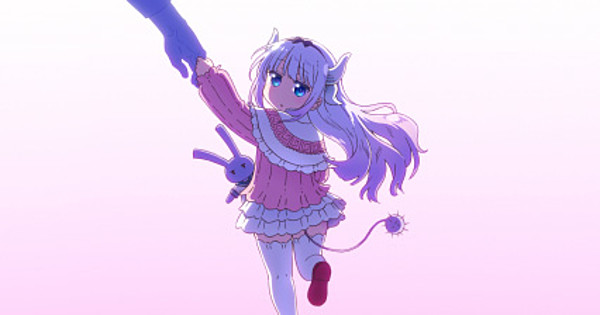On its most basic level, this is a movie about family. In the lore of Miss Kobayashi’s Dragon Maid, dragons don’t have family units. They don’t love their young and tend to see them only as battlefield companions or eventual rivals. However, thanks to her time in the human world, Kanna has learned the concept of parental love—felt it through her interactions with Kobayashi. She longs for such a connection with her biological father, even though he seems both incapable and uninterested in forming one.
It is through the relationship between Kanna and her father that the film explores the concept that neglect is abuse. Kids can’t stop yearning for parental love. They can be used and rejected again and again, but will forgive it all at even the slightest hope of getting what they emotionally long for. Many children repeat this cycle forever in vain. They simply can’t come to terms with the fact that their parents are never going to change—that their parents have to want to change in the first place and, even then, it may still be impossible.
It’s heartbreaking to watch, especially in Kanna’s case. She wants so desperately to get the father/daughter love she longs for that she’s willing to give up the happy life she has with Kobayashi at the mere hint that it might be possible. And deep down, even she knows she is doing something foolish, but can’t help herself.
Meanwhile, on the other side, Kobayashi finds herself seeing the situation for what it truly is—and while she’ll go to bat for Kanna in a heartbeat, the fact remains that she is not Kanna’s father and has no right to control her life. If Kanna chooses to go to her father’s side, Kobayashi can do nothing to stop it. So, instead of direct intervention, Kobayashi works to try and facilitate the kind of relationship Kanna wants between the two.
After all, if Tooru, Fafnir, Ilulu, Elma, and Lucoa can come to understand the various facets of human love, who’s to say Kanna’s father can’t as well? And to Kimun’s credit, he is never duplicitous in his feelings towards Kanna. He doesn’t understand what she wants from him, nor does he really care—and says as much. However, if doing something as simple as trading letters will get his daughter’s cooperation in the looming dragon war, he’s willing to humor her.
Of course, the true villain of the film has no such qualms about exploiting Kanna’s emotional stake. Azad understands that, as powerful as dragons are physically, they are rather innocent mentally, which makes them easy to manipulate. He is a person driven by the need for revenge: a dragon once killed the one he loves, so now he’ll get revenge by killing as many of them as possible. However, his major flaw is that his genocidal mindset requires that he view dragonkind as a monolith, with a set, immutable nature. Thus, killing any dragon counts as revenge because any dragon would have taken away his loved one if the situation presented itself.
However, the dragons on Earth prove this to be the lie that it is. They have formed a true found family. They protect and stand by each other even when their political views differ. From Kobayashi and their respective human companions, they’ve learned love. They’ve overcome their base nature and culture and are better for it.
With them as an example, it becomes clear that tricking dragons into fighting a brutal civil war isn’t the way to prevent personal tragedies like the one Azad experienced. Teaching dragons to love not only other dragons but all people as well is the only true path forward. And in the climax of the film, Tooru proves this by acting as someone who cares more about the feelings of those she loves than her dragon base instincts.
Visually, A Lonely Dragon Wants to Be Loved is a beautiful film. It retains the TV anime’s color palette and overall art style while taking the action scenes (of which there are several) to the next level. There’s a ton of detail in every scene, and it overall feels like a story tailored to the big screen.
As for the audio, the film contains a new fhána-sung opening that really ties everything together with the series thematically. And while the voice cast delivers the high quality you’d expect from the TV series, it’s Kimun (Fumihiko Tachiki) who is the most perfectly cast role in this film. I mean, who better to play an emotionally distant, abusive, neglectful father than the man who played Gendou Ikari in Evangelion.
All in all, Miss Kobayashi’s Dragon Maid: A Lonely Dragon Wants to be Loved is a fantastic little film. Built upon a setting filled with silly dragons and lighthearted comedy, we get a deep exploration of child neglect and the issues surrounding it. At the same time, we also get a story about a group of people who are trying to change their nature, to be better than they otherwise would be, thanks to the love and acceptance they have found around them. It’s good stuff from top to bottom and a film emotionally resonant regardless of whether you’ve seen the TV anime or not.
